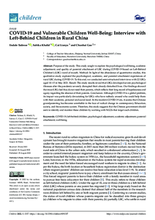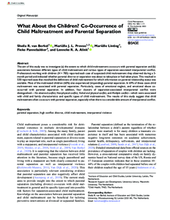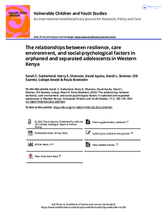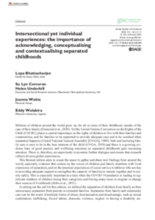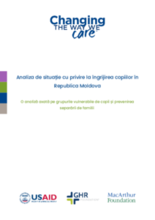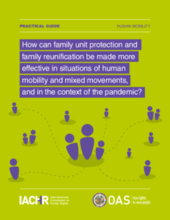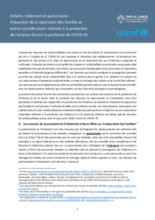This section includes resources related to separated children that may be useful during the COVID-19 pandemic.
Displaying 11 - 20 of 84
This study sought to explore the psychological well-being, academic adjustment, and quality of parental attachment of LBC during COVID-19 in rural China based on Left-Behind Children’s (LBC) word of mouth.
The aim of this study was to investigate (a) the extent to which child maltreatment co-occurs with parental separation and (b) associations between different types of child maltreatment and various types of separation-associated interparental conflict. This cross-national comparative study on family dynamics was based on National survey data of the US, Russia and 17 European countries indicates that in these countries 10–44% of the couples with children had separated before one of their children reached the age of 15 years.
This study found a strong relationship between the care environment and resilience in orphaned and separated adolescents and youths (OSAY) in western Kenya. Care environment and resilience each independently demonstrated strong relationships with peer support, social support, and participating in volunteer activities. Resilience also had a strong relationship with familial support. These data suggest that resilience can be developed through strategic supports to this vulnerable population.
In this editorial published in the special edition of the Global Studies of Childhood journal focused on separated childhoods in April 2022, the authors aim to create the space to gather and share new findings from around the world, especially evidence that centres on the voices of children and family members with lived experience of separation, and on the practical experiences of social service workforce who are key to providing adequate support to strengthen the capacity of families to remain together and to reunite safely.
This article explores the role resilience processes play in education and well-being outcomes for street-connected children. It draws on research and practice undertaken as part of the Building with Bamboo Programme (BwB) on resilience. BwB investigated the forms a resilience-based approach might usefully take in practice, the effect this has on promoting resilience in children, and how this resilience leads to improved outcomes in their lives.
Scopul analizei de situație a copiilor din Republica Moldova, cu accent pe copiii
vulnerabili și prevenirea separării de părinți, este de a oferi o imagine completă a
situației lor actuale, inclusiv în urma efectelor pandemiei COVID-19 și care să servească
elaborării de recomandări concrete cu privire la o serie de decizii bazate pe probe, pe
care statul dar și actorii societății civile au nevoie să le ia și, ulterior, să le implementeze,
pentru a îmbunătăți situația grupurilor celor mai vulnerabile, precum și pentru a
eficientiza sistemul de îngrijire alternativă a copilului din Republica Moldova.
The guide recommends a series of measures aimed at States, which focus on protecting family unity, preventing separation, and ensuring reunification in the context of human mobility, including for unaccompanied or separated children and adolescents, who require international protection or who leave their homes in search of better opportunities or family reunification.
Le présent document fournit des orientations provisoires aux acteurs des secteurs de la protection de l’enfance et de la santé, dans le contexte des mesures de quarantaine et d’isolement, pour leur permettre d’atténuer les risques liés à la protection de l’enfance, de réduire au minimum la séparation des familles et de favoriser l’unité des familles et la cohésion sociale.
Through an analysis of the impact of the pandemic on the Italian and Greek reception systems and social interventions with unaccompanied minors (UAMs), the authors of this study utilised a multiple embedded case study approach within a comparative analysis, to identify key changes in the main services which should be guaranteed to minors—namely, hosting/housing, guardianship, foster care, family/relatives reunification, school integration, language, job training for care leaving, and preparation for leaving care after 18 years.
This issue brief surveys the existing literature based on the limited available data to highlight areas of urgent concern for children on the move as they navigate life during the pandemic, examined through the lens of gender.

